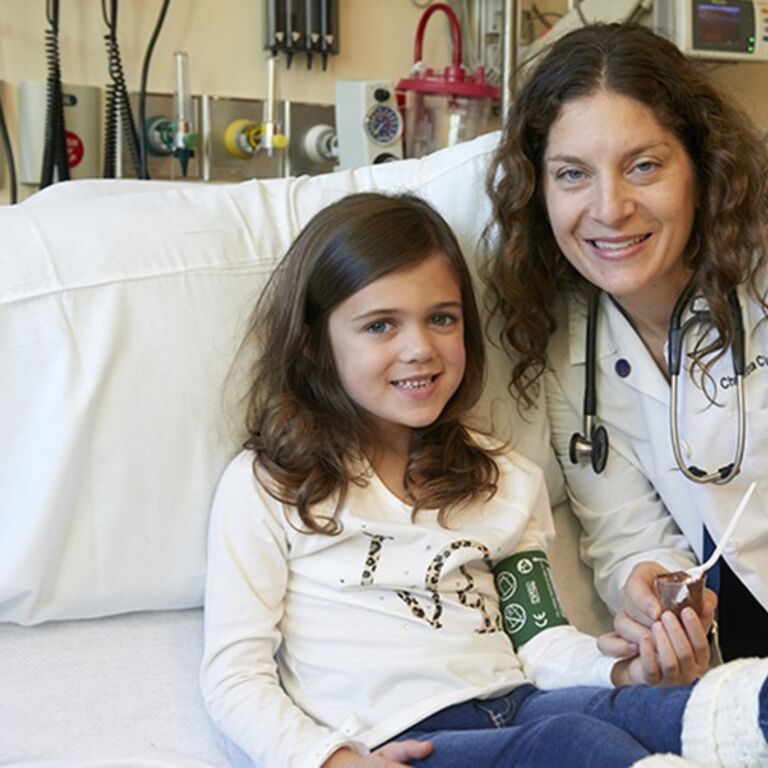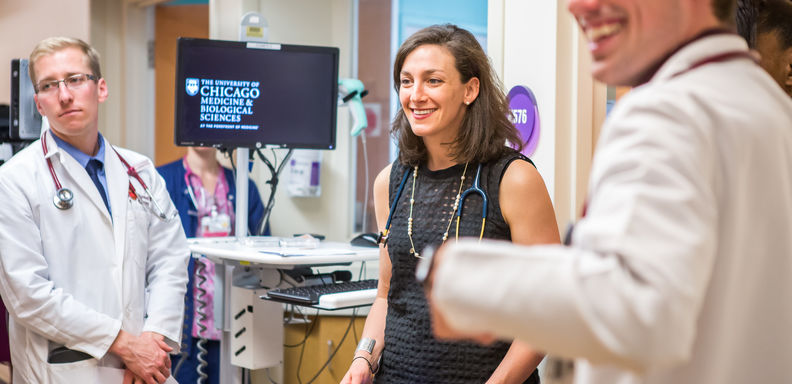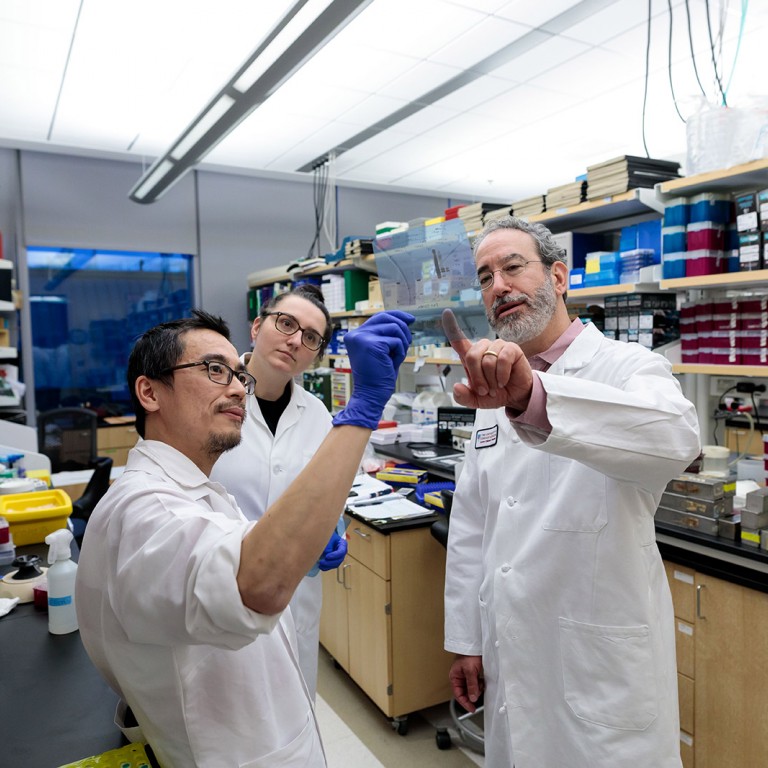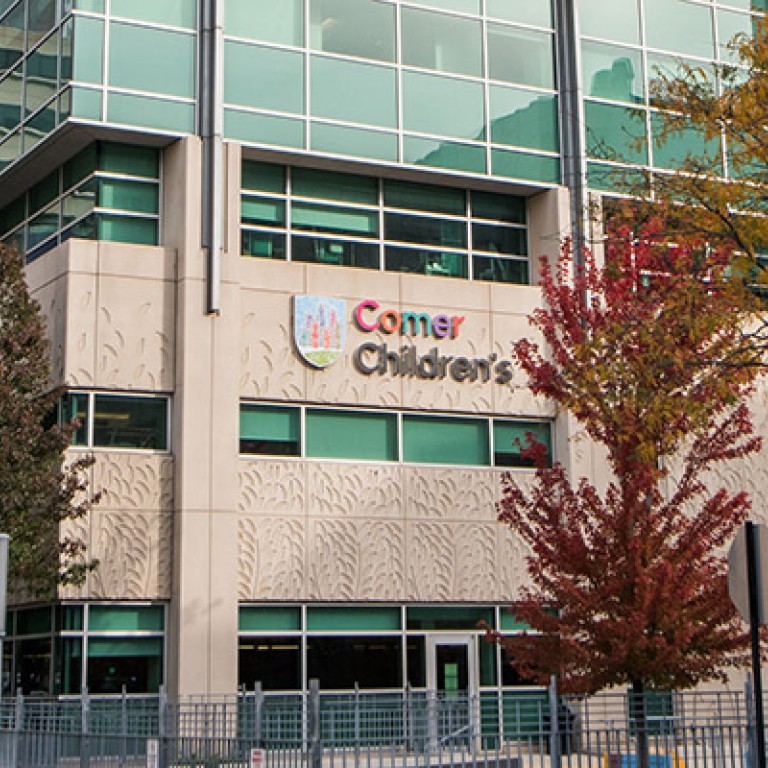The Fellowship Program trains pediatricians in the clinical discipline of Pediatric Hematology/Oncology and prepares them for a potential career in academic medicine and as independent investigators.
Fellows receive one month of vacation each year. Book/travel funds are provided each year, and are generally used in the first year for books or other educational resources, and in the second and third year for travel to present at national meetings.
Successful completion of the Fellowship program prepares fellows for the Pediatric Hematology/Oncology subspecialty board examination, and independent practice as an academic Pediatric Hematologist/Oncologist.
The first year of the Fellowship Program is predominantly clinical with six to seven months of service on the inpatient Pediatric Hematology/Oncology/Stem Cell Transplant Service, and Outpatient Hematology and Oncology Clinics, as well as additional required and elective rotations.
During the second and third years, the majority of each fellow’s effort is devoted to training in laboratory, translational, and/or clinical research. A fellow’s time is protected to allow concentration on investigation. Fellows continue to follow their patients in continuity clinic one day each week throughout all years of fellowship.
Clinical Training:
The first year of fellowship is designed to develop clinical skills through direct inpatient and outpatient care. These skills serve as a foundation for all three years of fellowship and for a career in pediatric hematology/oncology. This year is largely clinical with five to six months of service on the inpatient Pediatric Hematology/Oncology/Stem Cell Transplantation Service, and two months focused on inpatient hematology consults and outpatient hematology clinics, including our comprehensive sickle cell clinic. There is time dedicated exclusively to Stem Cell Transplantation, including outpatient care of patients who have undergone stem cell transplantation, and also time in the stem cell processing and HLA laboratories. Other required rotations in the first year include focused time on Coagulation and Comprehensive Hemophilia and Thrombosis Care, as well as Blood Bank and Cancer Susceptibility rotations. There is elective time in the first year, which can be spent with solid tumor pathology or hematopathology, radiation oncology, or in a variety of other experiences. Each fellow will spend one full day in clinic each week, building a continuity clinic of patients for whom the fellow is the primary provider.
Continuity Clinic:
Throughout all years of the program, fellows have weekly continuity clinics where they follow and care for their own patients in the clinic. An attending hematologist/oncologist and faculty members with disease-specific clinical expertise supervise all of these clinical activities. Fellows assume primary responsibility (with gradually increasing independence) for care of their own patients -- learning the fundamentals of outpatient management of newly diagnosed and continuing patients with hematologic and oncologic disorders..
The roles and responsibilities of the clinical fellow are to:
- Be involved in and eventually direct the day-to-day care of patients
- Be a major part of the decision-making team
- To diagnose and treat patients with hematology/oncology conditions
- Perform diagnostic procedures
- Interpret test results
- Develop and maintain long-term professional relationships with the children and families they follow
- Provide short-term and long-term follow-up care
- Learn about cost-effective medical care and managed care pathways
- Interact with referring physicians
- Interact with other health care providers
- Manage hospice patients both in the hospital and at home
- Treat cancer survivors
Research Training:
The second and third year of fellowship are designed to focus on laboratory, translational and/or clinical research training. During the first year the fellow defines an area of investigation, choosing to work under the supervision of one of the section faculty members or within one of the other research units at the University of Chicago.
The second year is focused on laboratory and clinical research training with the fellow’s time protected to allow concentration on investigation. Fellows are encouraged and assisted in the writing of grant applications.
The third year is a continuation of research training. It is expected that each fellow will write one or more research papers during this year. Fellows are also expected to present their research findings at national meetings.



